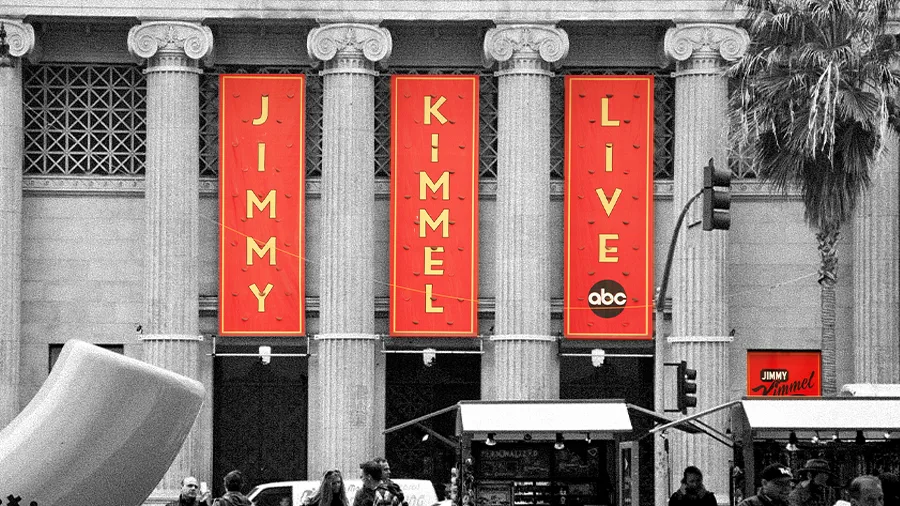The recent saga around Jimmy Kimmel’s suspension and reinstatement was never about a controversial joke. Outrage served as a convenient excuse, not the direct cause. The real story is economics: late-night television’s business model is obsolete. Even Kimmel’s celebrated return was a fractured victory, with major affiliate groups like Sinclair and Nexstar refusing to air the show. The saga is less about politics or censorship than it is about expensive contracts, a vanishing audience, and a business collapsing under its own weight.
We got the inside take from Mr. Lynn Scheid, a media veteran with experience spanning local newsrooms to executive roles at major networks and programming giants. Currently the Chairman of the Board of Atlantic Media Group, his perspective combines boardroom strategy with ground-level realities.
In Scheid's analysis, the purpose of television is not art, news, or entertainment; it’s commerce. The entire model was built for a world that no longer exists, when the nuclear family gathered around a single television set and advertising dollars flowed through a two-tiered system of high-stakes national buys and cheaper local spots.
A spin cycle story: "Television was created for one thing: it was designed to sell washers and dryers. Period. When it comes down to it, those washers and dryers are the only reason the whole thing exists."
That business model hinges on a mass audience that has simply vanished. The long-predicted decline in cable viewership is now a core business reality, making hosts' multi-million dollar contracts a financial time bomb. "They're all about to lose their $30M, $50M contracts because the business model failed. The business model failed because the audience habit changed, and the behemoth broadcasters are so big they cannot adapt quickly enough. They don't assimilate to the new way of things," said Scheid.
The great disconnect: "When I started out in the nineties as a broadcast management and media exec, we had 191 million homes on cable. They're under 30 million homes today. It's a big dramatic shift."
The kids are online: For the national brands that underwrite late-night, the younger generation is the most coveted—and increasingly unreachable—demographic. "Gen Z the ones with the disposable income, but advertisers can't get to them. Why? Because they don't have a cable subscription and they're not watching Jimmy Kimmel. At that time of day, they're all flipping through social media."
In this fractured market, Scheid said that many modern hosts have made a fundamental business error by abandoning the politically neutral, all-are-welcome approach of Johnny Carson. By choosing a side in a polarized culture, they chose to alienate a large portion of their potential customer base. From a brand-risk perspective, taking a political side is commercially toxic for a format built on mass appeal, regardless of how righteous the stance may seem.
Carson's golden rule: "He's an entertainer. An entertainer. He's not the news. He's not there to commit to anything; he's there to tell jokes, period. So we can all go to sleep and smile."
Left for broke: "Kimmel didn't do what Johnny Carson did, who stayed in the middle. He went left, and that's a mistake. It's not because of the politics—it's because he cut half the audience out. That's when he started losing brands."
All of which brings us back to Kimmel. Scheid argued the host’s controversial joke gave the network the perfect excuse it needed to act on an underperforming asset. By making a comment that created significant brand risk, Kimmel breached his contract and handed the network all the ammunition it needed. The suspension was a de-escalation tactic, and the return was a surrender.
Cooler heads: "There are some pretty pissed off people out there. The choice to 'suspend indefinitely' is like a ceasefire; it gave everybody some time to step back, take a breath of fresh air, and cool off," Scheid said. What lingered after the pause was not relief, but a permanent shift in leverage. "Kimmel just gave them the opportunity to fire him, and they'll have that forever now. He's lost all leverage. He's completely under their thumb."
So, can streaming save late-night? Scheid's take: Don't hold your breath. In his view, the very DNA of late-night comedy is obsolete. In an attention economy that rewards escalating drama, Scheid argues that simple comedy struggles to compete, and the formula's core ingredient—the celebrity guest—no longer provides a return on investment. In an era of endless content and direct-to-fan access, the ability of a celebrity appearance to generate a ratings spike has collapsed.
Star power shortage: "Audience habits have changed. Younger generations aren't swayed by simple things. Late night guests aren't enticing, viewership doesn't spike, and nobody cares about a megastar coming to sit on the couch," he said. "And of course, they're smart enough not to pay through the nose for cable."
Kimmel wasn't canceled; he was priced out of a dying business. His return isn't a revival; it's a reminder that the format is on life support. The clear takeaway is that for advertisers and networks, the future is not in midnight monologues, but wherever the next generation already spends its time and attention.

